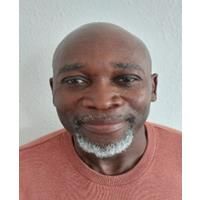The theme for this year’s Black History Month is “Reclaiming Narratives”, which emphasizes recognizing and correcting the narratives of Black history and culture.
This is of particular importance in science because throughout history, Black scientists have made significant discoveries that have shaped the world we live in today despite being oppressed, refused jobs and often not given the recognition they deserve or having their stories told. A prime example of this is depicted in the movie Hidden Figures, which retells the story of four Black female scientists (Katherine Johnson, Mary Jackson, Dorothy Vaughan and Christine Darden) who were instrumental in the launch of the NASA astronaut John Glenn into orbit.
Coincidentally, Black History Month occurs at the same time as the Nobel Prizes are awarded; however, no Black scientist has ever won a science Nobel. This includes pioneers such as Charles Henry Turner, the first Black scientist to publish in Science for his groundbreaking research on animal behavior, through to Kizzmekia Corbett, the immunologist who successfully led the team that developed the Moderna COVID-19 vaccine.
Although only a few may be aware of these breakthroughs, by reclaiming the narratives, it gives an opportunity for the voices of today’s Black scientists to be heard and enables them to take ownership of their own narratives. This article highlights several inspiring men and women working across academia and industry within drug development and discovery who are breaking barriers and regaining ownership of their own narratives.
Credit: Ijeoma Uchegbu.
Professor Uchegbu is a distinguished nanoscientist who gained her PhD from the University of London. Her PhD focused on drug delivery using nanosystems, which led to her identifying a nanoparticle that could be used for drug delivery.
She is currently serving as the 7th president of Wolfson College at the University of Cambridge. Prior to her current role, she served as a professor of pharmaceutical nanoscience at University College London (UCL) and the chief scientific officer of Nanomerics Ltd, a spin-out from UCL specializing in the drug delivery of hydrophobic drugs, nucleic acids and peptides.
She has also been a strong advocate for diversity and inclusion and, whilst at UCL, was Pro-Vice Provost for Africa and the Middle East, and the Provosts’ Envoy for Race Equality. She is also a fellow of the Academy of Medical Sciences, an honorary fellow of the Royal Society of Chemistry and British Society of Pharmacology, a governor on the Wellcome board (one of largest biomedical research charities) and a member of the Academy of Medical Sciences Council.
Her pioneering work, in which she designed polymers that could self-assemble into nanoparticles, led to the discovery that these nanoparticles could be used for drug delivery. She was the first to demonstrate that peptides could be delivered across the blood-brain barrier to elicit a pharmacological response when presented as peptide drug nanofibers.
Furthermore, her group was also the first to demonstrate that nanoparticles could be delivered via the nose exclusively to the brain, which led to the discovery of the therapeutic medicine candidate Envelta™, which was designed to address the devastating side effects of opioid poisoning. Envelta has been out-licensed to Virpax Pharmaceuticals, and clinical trials are currently being developed. These nanoparticles are currently being explored for other diseases, such as age-related macular degeneration and triple-negative breast cancer.
Professor Uchegbu, Nanomerics and the technology underpinning Envelta have received many prestigious awards including the King’s Award for Enterprise in May 2024, the UK Government’s Women of Outstanding Achievement in Science, Engineering and Technology 2007, Royal Pharmaceutical Society Pharmaceutical Scientist of the Year 2012, Special Recognition Business of Science Leadership Award 2023, listed in Who’s Who in 2024 and an honorary degree from Lincoln University in 2024.
 Credit: Segun Fatumo.Professor Fatumo is a computational geneticist who gained his PhD in computer science, specializing in bioinformatics, from Covenant University, Nigeria. During his PhD, he identified 22 potential drug targets against malaria, some of which have been tested and validated experimentally.
Credit: Segun Fatumo.Professor Fatumo is a computational geneticist who gained his PhD in computer science, specializing in bioinformatics, from Covenant University, Nigeria. During his PhD, he identified 22 potential drug targets against malaria, some of which have been tested and validated experimentally.He is the chair of genomic diversity at Queen Mary University of London and head of NCD genomics at the Medical Research Council. He is the founder and president of the Nigerian Bioinformatics and Genomics Network.
He is dedicated to championing African representation and inclusion in genomic research as the potential to fully develop global genomic medicine hinges on investigating the genomes of all populations. He states that past efforts have mainly focused on European ancestry, which has limited transferability to Africa; therefore, in order to achieve true equity, the scope must be broadened to include Africa which is essential for a comprehensive understanding of genomics.
Professor Fatumo co-led the first genome-wide association study (GWAS) of cardiometabolic traits in Africa and the first GWAS of kidney function in continental African populations.
He was awarded the prestigious MRC Impact Prize in 2023 for his work advocating for the inclusion of Africa in genomic research and championing genetic risk prediction of complex diseases in Africa.
 Credit: Ane Ogbe.
Credit: Ane Ogbe.Dr. Ogbe is an associate scientific director in the clinical biomarker lab at Moderna. Her group uses flow cytometry to profile immune cells from clinical trials in order to understand the efficacy of new therapeutics (prior to regulatory submission) targeted at treating rare diseases.
Prior to her current role, she held two previous group leader positions at Evox Therapeutics and Adaptimmune. She obtained her PhD in immunology from Brunel University, where she discovered that two genes – Erg2 and Erg3 – are involved in regulating how T follicular helper (Tfh) cells differentiate. She has an interest in understanding the immunological landscape that is present in infectious diseases, cancers and metabolic diseases.
Her postdoctoral studies were carried out at the University of Oxford in collaboration with the Duke University – the National Institutes of Health CHAVI-ID consortium, looking at how a subset of CD4+ Tfh drive the immune response of broadly neutralizing antibodies (bNAbs) in chronic HIV infection as a potential cure strategy for HIV.
During the COVID-19 pandemic, Dr. Ogbe contributed to informed vaccination policies by using her expertise to characterize the immunological response following natural infection and vaccination in cohorts of immunocompromised and immunocompetent individuals. Her work gave useful insights into the significance, quality and stability of the immune response.
 Credit: Godwin Aleku.
Credit: Godwin Aleku.Dr. Aleku is an assistant professor in chemical biology and drug discovery at Kings College London. He gained a PhD in chemical biology in 2017, working with Professor Nicholas Turner FRS at the Department of Chemistry, University of Manchester. He was a postdoctoral research associate at the Manchester Institute of Biotechnology between 2017 and early 2020 in the group of Professor David Leys. He was an EMBO New Venture Fellow, spending three months with Professor Roland Riek’s biomolecular NMR lab at the Department of Chemistry, ETH Zurich. In early 2020, he moved to the University of Cambridge, where he was a Leverhulme/Isaac Newton Trust Early Career Research Fellow with Professor Florian Hollfelder and a junior research fellow at Wolfson College, Cambridge.
He joined King’s College London in late 2022 to take up a lectureship in chemical biology and drug discovery within the School of Cancer and Pharmaceutical Sciences. He leads interdisciplinary research focusing on developing clean enzyme-based sustainable pharmaceutical synthesis methods and applying biocatalysis in drug discovery. His research employs multidisciplinary approaches at the interface of organic chemistry, industrial biotechnology and early-phase drug discovery.
He discovered and characterized the first reductive aminase enzymes (RedAms), which catalyze an industrially important organic reaction. RedAms have been incorporated into synthesis and drug development programs in several pharmaceutical companies, including GSK, Pfizer and Novartis. His foundational work on the discovery and characterization of RedAms, alongside other follow-up developments in RedAm-catalyzed reductive amination, was recognized by a Royal Society Horizon Prize (Chemistry-Biology interface) in 2021.
He was awarded a Royal Society grant (2023) and the EPSRC New Investigator Award (2024).
 Credit: Blessing Airhihen.
Credit: Blessing Airhihen.Dr. Airhihen is a pharmacist and senior lecturer in pharmacology within the Bioscience Department at Nottingham Trent University (NTU). She is also a senior fellow of the Higher Education Academy. Dr. Airhihen obtained her PhD in biomolecular sciences from the School of Pharmacy at the University of Nottingham, where she studied the molecular basis of the CCR4-NOT deadenylase’s relevance to human disease. During her PhD, she developed biochemical assays for target validation in early-stage drug discovery and contributed to excellent paper publications in this space. Her work was celebrated at the British Pharmacological Society’s annual conference in 2016, where she won the best oral presenter award.
She has been involved in research-led teaching for over two decades and is passionate about inspiring and empowering undergraduate and postgraduate students through co-creation and innovation in teaching and learning.
In her role as senior lecturer, she teaches physiology and pharmacology to undergraduate and postgraduate students and contributes to the development, management and successful running of pharmacology modules and courses. In addition, she is involved with university-wide activities through the Trent Institute for Learning and Teaching, mentoring initiatives and collaborative projects centered around connecting industry practice with classroom learning.
Her main research focuses on identifying novel targets and the characterization of small molecule inhibitors of the CCR4-NOT targets relevant to oncology. She also extends her research to identifying compounds that slow down neurodegenerative disease progression.
Prior to joining NTU, she was a senior research scientist at AstraZeneca (AZ), where she was a subject matter expert for E3 ligase protein lead optimization and generation in pre-clinical drug discovery projects from start to delivery. During her time at AZ, she characterized numerous proteins and PROTACs using several assays, including thermal shift assays, multi-angle dynamic light scattering, size exclusion chromatography and mass spectroscopy, amongst others.
She generated novel first-in-class targets and was instrumental in identifying a number of purification strategies and processes for the production of novel E3 ligases for DNA-encoded library screening. She also engaged in mentorship of undergraduates and contributed to process development, inter-group interaction workstreams within discovery sciences and actively participated in sustainability planning for the team. She obtained a Catalyze Award from colleagues and project and management teams for her outstanding work.
 Credit: Jacob Milligan.
Credit: Jacob Milligan.Dr. Kusena is the VP of operations and product owner at MFX, and holds his PhD in cell therapy process development and regenerative medicine from Loughborough University’s Centre for Biological Engineering. His PhD had both an academic and business angle as he looked at understanding how the Parkinson’s disease cell therapy that he studied during his PhD could be optimized for manufacturing and then become a commercialized product that can be clinically adopted and reimbursed. In his role as VP, he provides exemplary operational support to ensure that both the people and systems are clearly aligned to operate at maximum efficiency.
MFX’s patented platform technology is a game changer for cell therapy. It enables multiple cell culture conditions to be run in parallel; the optimized conditions can then be scaled up to several billion of cells at half the manufacturing cost.
In 2022 he was awarded the Shott Scale Up Accelerator award (£10K grant), a 6-month program that develops, nurtures and strengthens the leadership capabilities of senior leaders in innovative scale ups.
In 2024 he was co-track chair of one the largest European life science conferences, ELRIG Drug Discovery, for the cell and gene therapy track.
 Credit: Bernadine Idowu.
Credit: Bernadine Idowu.Professor Bernadine Idowu is a professor of biomedical sciences at the University of West London (UWL). She graduated with a BSc (Hons) in biochemistry from King’s College London and completed her PhD in biomaterials at Queen Mary University of London. After her PhD, she returned to King’s College London to conduct research in gene therapy. Subsequently, she was recruited by UCL to work on a tissue engineering project focused on laryngeal transplantation. She then pursued clinical research on bone tumors.
Her pioneering work and publication on fibrous dysplasia, a benign tumor, earned her the prestigious Roger Cotton Prize, establishing her as an award-winning scientist. Eventually, she returned to King’s College London to continue her research in bone regeneration.
She is deeply passionate about diversity and inclusion. With the support of former President Sir Ed Byrne at King’s College London, she took on a part-time role in the central team. This position enabled her to successfully deliver several projects aimed at addressing the action plans from the Race Equality Charter Mark.
Upon examining the data, she identified a lack of representation, which inspired her to develop the Black Minority Ethnic (BME) Early Career Researcher (ECR) How to Stay in Academia conference. This initiative has grown into an international annual conference, now in its 8th year, and has fostered a network of over 1,000 people.
Her passion for improving diversity in biomedical science led her to found the Black in Biomedical Science undergraduate conference, now in its second year. The conference aims to build the next generation of Black biomedical researchers.
Her dedication to inclusive education in biomedical sciences led her to develop a high-quality, diverse and inclusive curriculum. Four years later, this biomedical science course was ranked 1st in London and 4th in the UK in the recent National Student Survey.
She founded Youth Against Crime Not Crime Against You, a charity that celebrated its 14th anniversary in September 2024. As a Principal Fellow of the HEA and an elected member of the Royal Society of Biology, she has made significant contributions to her field.
Additionally, she co-chairs the Medical Research Council’s Black in Biomedical Research Advisory Group, which has committed £3.7 million over three years (2023-2025) to fund initiatives addressing the underrepresentation of people from Black heritage backgrounds in biomedical research.
 Credit: Lekan Daramola.
Credit: Lekan Daramola.Lekan Daramola is a biologics research and development scientific leader with expertise in mammalian expression technologies and the development of therapeutic proteins, nucleic acid and viral vector drug modalities.
He obtained his first degree in microbiology at the University of Ilorin, and his MSc at the University of Surrey. Prior to joining the biopharmaceutical industry, Lekan worked in the field of tropical diseases at the Medical Research Council in The Gambia and the London School of Hygiene and Tropical Medicine.
He has over 26 years’ of experience working in the biopharmaceutical industry and his experience spans lead drug molecule selection to regulatory submission. His expertise includes molecular biology, mammalian recombinant protein expression technologies, cell line development and early CMC support. In addition, he also has expertise in the development of novel drug modalities like nucleic acid drugs/vaccines (RNA, DNA) as well as AAV (viral vector) production platform development.
He led the development of a proprietary and patented industry-leading high yielding transient expression platform which enabled the rapid production of therapeutic proteins especially during early drug development. He has extensive leadership experience of diverse global teams, adept at fostering both internal and external collaborations as well as people development. He was the AZ lead for an EU-funded pandemic rapid response academia and industry collaborative project (Zoonoses Anticipation and Preparedness Initiative or ZAPI) which generated valuable findings before the recent COVID-19 pandemic. Before leaving AZ, he was a senior director, managing mammalian expression activities, the development of nucleic acid and AAV production capabilities to deliver preclinical and clinical drug development goals.
He is currently an independent consultant who specializes in supporting biotech, startup or big pharma companies during critical early drug development activities, enabling successful preclinical and clinical decisions as they develop new drugs for patients.

Dr. Macaulay is an exceptional safety medical director at GSK and a fellow of the Faculty of Medical Science. She holds a Bachelor of Medicine and Surgery degree (MBBS) from the University of Jos, an Associate Diploma in Laboratory Medicine/Pathology from West African/Nigerian Postgraduate Collages, a Diploma in Pharmaceutical Medicine, and a Master of Science degree in pharmaceutical medicine/drug development science from Kings College which she completed at the remarkable age of 62! She is a huge advocate for continued professional development.
At GSK, she manages pharmacovigilance and benefit-risk management for respiratory and rare diseases. Her role at GSK spans a wide area, including chair of the independent safety review committee, which involves safeguarding participants’ ethical and safety interests whilst maintaining data integrity.
She also offers medical and scientific expertise for the safety assessment and risk management of significant GSK assets throughout clinical development and post-marketing. She also performs comprehensive reviews and analysis of data, addressing any safety concerns and raising them to senior management safety governance. She also acts as an appraiser for the General Medical Council and promotes diversity and inclusion within patient safety.
Prior to joining GSK she was a senior director of medical safety affairs and strategy within hematology at Cepheid. She has also held senior roles at AZ/Medimmune, Mundipharma and PPD.
 Credit: Wayne Wright.
Credit: Wayne Wright.Dr. Wright is an established bioanalytical scientist with nearly two decades of experience at GSK supporting clinical and pre-clinical projects for small molecules in a highly regulated environment.
His first degree in chemistry was obtained from the University of the West Indies. In 2022 he successfully completed a PhD at the University of Strathclyde Institute of Pharmacy and Biomedical Sciences. His PhD was based on determining if parallel multi-compartment in vitro drug binding measurements can improve the prediction of in vivo PK measurements. He determined several parameters (fraction unbound, free concentration, plasma protein binding, volume of distribution) across a set of 50 compounds (acids, bases and neutrals) using competitively rapid equilibrium dialysis (CRED). He also designed experiments using the CRED to evaluate the rate of drug release from different liposome formulations containing doxorubicin.
Whilst at GSK, he co-authored and implemented the biomarker guidance document within the department. The implementation of the document provided scientific leadership, knowledge, training and guidance to colleagues around the associated complexities of biomarker method development, validation and analysis worldwide within GSK.
In addition, he led a personal initiative and evaluated the impact of phospholipids on ion suppression in HPLC. Through this initiative, he worked effectively with internal and external management lines to provide credible phospholipid-based chromatographic data. As a key speaker at the DMDG Open Meeting at Canterbury University, he shared and presented the data to the wider bioanalytical community.
Dr. Wright was also a bioanalytical technical consultant urgently appointed by the Bioanalysis Immunogenicity and Biomarker Leadership team at GSK to interface with equipment manufacturing representatives, GSK lead Olympic representative and third-party sample analyst. In this role, he identified the rate-limiting factor, led and coordinated the effort to successfully resolve a specific gravity equipment to be used for the testing of competing athletes’ biological samples as part of WADA. He was awarded a silver recognition by the GSK Olympic leadership at the GSK Harlow site.
He recently launched Wright Bioanalytical Consultancy Services and is looking forward to applying his bioanalytical expertise to support biotechs, start-ups, academia and CROs in method development, validation, data checking, protocol reviews, HPLC MS/MS training and outsourcing of bioanalytical studies to deliver on project objectives.
 Credit: Pamela Sweeney.
Credit: Pamela Sweeney. Dr. Sweeney is an independent scientific consultant and a trained health and safety advisor. Previously, she served as a senior scientist and health and safety officer at Crescendo Biologics, a clinical-stage immuno-oncology company developing novel, targeted T cell-enhancing Humabody® therapeutics. In this role, she was part of the discovery team, focusing on the purification and characterization of proteins for both in vitro and in vivo research.
She holds a BSc in chemistry with medicinal chemistry and earned her PhD in chemistry from the University of Warwick in 2019. Her doctoral research investigated the structure and function of dolichyl/polyprenyl phosphomannose synthase, an enzyme involved in protein glycosylation. Impairment of this enzyme in humans can lead to congenital disorders of glycosylation in children.
Following her PhD, she took on a postdoctoral research fellow position at the University of St Andrews, where she spent three years studying the structure, dynamics and molecular inhibition of the Staphylococcus aureus m1A22-tRNA methyltransferase TrmK, a potential drug target for S. aureus. This work resulted in a first-author publication and an editor’s pick in the Journal of Biological Chemistry.
Dr. Sweeney has also been active with the Black Medical Scientific Network, recognizing the critical need to elevate the visibility of Black scientists in the UK. She believes that education and mentorship are essential for fostering diversity in STEM fields, as they empower underrepresented individuals to pursue careers in science and innovation. By securing student placements and providing guidance, she aims to create pathways for the next generation of scientists, ensuring that their voices and contributions are recognized.
Furthermore, her commitment to education extends through her role as the founder of the Khaya Foundation, a registered charity that raises funds to support underprivileged children in Zimbabwe, emphasizing the transformative power of education in breaking cycles of poverty and inequality.
The men and women featured in this article have contributed enormously to advancing the development of new medicines, understanding the genetics/pathogenesis of diseases and protecting patients during clinical trials and diseases. They have reclaimed the narrative by becoming leaders in their field who are now aspiring and paving the way for the next generation of Black scientists. No doubt their collective contribution may one day lead to a Nobel laureate nomination.
This post was originally published on here







